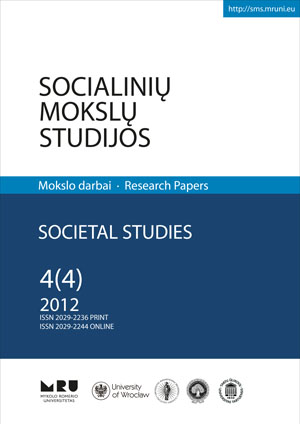Kintamosios darbo užmokesčio dalies nustatymo ir keitimo problemos siekiant įgyvendinti teisingo darbo apmokėjimo principą
Problems in Determination and Replacement of Variable Part of Wage Size in Pursuance of Implementing Principle of Fair Remuneration for Work
Author(s): Vaidotas GranickasSubject(s): Social Sciences
Published by: Mykolas Romeris University
Keywords: obligatory; substantial conditions of employment contract; fair pay (remuneration) for work; variable part of wage
Summary/Abstract: The existence of the prohibition of an employer’s unilateral reduction of the size of the variable part of wage without an employee’s written consent is related to the form of variable part of wage implementation in the company. Therefore, the rights and responsibilities of subjects of the Labour Law in the context of the variable part of wage, the assumption of their change, withdrawal or emergence directly depend on the form of the implementation of these responsibilities. Even when an employer motives the employee on his own discretion, substantive law obligates the employer to apply the principle of fair remuneration for work, in compliance with the procedures of determination and information listed in Article 95 part 3, Article 188 of the Labour Code. When qualifying the wage condition that has special meaning as a mandatory condition of the contract, confusion arises in the linguistic interpretation of the norm. The assumption is drawn to interpret broadly not only the conditions of the Labour Contract set in Article 95 of the Labour Code, but the related norms as well—to broaden the list of dispute categories, set in part 1 of Article 297 of the Labour Code due to which the legislator sets one month limit and the employee uses a different dispute settlement procedure which would be a direct appeal to the Court without application to the Labour Dispute Commission. Article 297 part 1 of the Labour Code indicates the definition of “mandatory condition of employment contract”. This definition includes place of work and job functions according to Article 95 part 1. Part of remuneration provided in Article 95 part 3 would not comply with the interpretation of legal norms (Article 297 part 1 of the Labour Code) formed in legal practice. In national legal regulation a pay for work is qualified as a condition of employment contracts having special meaning but not the mandatory one.
Journal: Socialinių mokslų studijos
- Issue Year: 4/2012
- Issue No: 4
- Page Range: 1585-1603
- Page Count: 20
- Language: Lithuanian

